Rural and Northern Immigration Pilot (RNIP) — Program Closure & Legacy
A&M Canadian Immigration Law Corporation
Rural and Northern Immigration Pilot (RNIP) — Program Closure & Legacy
The Rural and Northern
Immigration Pilot (RNIP) was Canada’s community-driven immigration pathway
designed to attract skilled foreign workers to smaller and northern
communities. As of August 31, 2024, IRCC no longer accepts new RNIP
applications. Canada.ca
This article explains the
status of RNIP, what applies for existing applicants, and what alternative
pathways may be open now.
What the Closure Means
- New candidates can no longer apply for
community recommendation or permanent residence under RNIP after August
31, 2024. Canada.ca
- However, IRCC and communities will continue
to process applications that were submitted on or before that
date. Canada.ca
- Applicants whose files remain active may still
be eligible for work permits while their RNIP PR application is
processed. Canada.ca
Who Is Affected
Category | Status After RNIP
Closure |
Applicants who applied
before August 31, 2024 | Their cases will still be
processed under the RNIP rules. |
Applicants who intended to
apply but hadn’t yet | Can no longer initiate new
RNIP applications. Must seek alternatives. |
Community Recommendation
applicants pending before the cutoff | Their job offers and
recommendation process continue under old rules. Canada.ca |
Alternatives After RNIP
Closure
To those who cannot apply
under RNIP anymore, alternatives include:
- Provincial Nominee Programs (PNP)
Many provinces offer PNP streams for skilled workers, sometimes with regional or rural focus. - Express Entry + PNP
Use the federal Express Entry system and combine with a provincial nomination to boost CRS scores. - Employer-driven streams (e.g. AIP, Rural
programs in provinces)
Some provinces may develop their own rural or regional programs to replace or supplement RNIP. - Atlantic Immigration Program (AIP)
In Atlantic Canada, AIP remains active (for now) and may suit candidates willing to move to Atlantic provinces. - Careers in rural/remote regions
Some PNPs prioritize regional or smaller municipality jobs — checking province-specific immigration portals may reveal new streams.
Tips for Affected
Applicants
- If you had already started an RNIP application, stay
in touch with the community and IRCC for updates.
- Gather strong documentation (e.g., job offer,
community ties, language, education) to support your file under the
existing regime.
- Explore PNP conditions and criteria in
your target province early — sometimes you can pivot your application.
- If your job offer is withdrawn or your school
changes, check whether you can retain eligibility via other
pathways.
- Seek advice from a qualified immigration lawyer
or consultant to navigate shifting policies.
Conclusion
The RNIP closure as of
August 31, 2024 marks the end of new opportunities under that specific
pilot. But the program’s legacy lives on for those whose files are still in
process, and alternative immigration pathways remain open.
If you had planned to apply
via RNIP or are watching rural immigration options, now is the time to pivot
and strategize with up-to-date programs (PNPs, AIP, regional streams). I can
also help you map alternative pathways based on your profile if you like.






